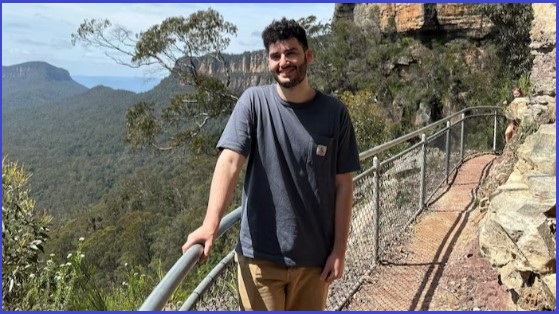A man falsely accused of being the Bondi Junction attacker wants NSW Police to prosecute social media users for spreading the false claims online.
University student Benjamin Cohen wants police to investigate offences including defamation and harassment.
Cohen – whose build and bearded countenance resembled that of 40-year-old Joel Cauchi, the man who killed six people and injured 12 more in the 13 April attack at Bondi Junction Westfield – was misidentified by Channel 7 News as the killer, spawning a flurry of online attacks and threats on Cohen from social media users in Australia and around the world.
Nearly a month after the attack, Cohen is now lobbying the NSW Commissioner of Police to prosecute the users who amplified the misidentification – which Channel 7 quickly admitted was “a grave mistake” and confidentially settled with Cohen after he pursued defamation charges against the network – and to consider prosecuting them for what his lawyer Patrick George this month described as “maliciously [posting] the false accusation for their own improper purposes, in some cases simply to draw attention to themselves.”
Cohen and George have compiled what the lawyer called a “comprehensive” range of evidence detailing social media posts – particularly on X – that, he alleges, constitute menacing, harassing and offensive conduct as well as criminal defamation and inciting violence on racial grounds.
The initial identification of Cohen as the killer spawned a firestorm of misinformation and online hate – with a range of far-right and antisemitic commentators on Telegram and X rebroadcasting the false allegations to millions of followers, who weaved the false narrative into their own hate-filled agendas.
Some wrongly claimed that he was a Muslim while others argued that he was targeted because he is Jewish – raising what George called “serious concerns for the welfare and safety of people in the community as a result of such malicious and irresponsible use of social media.”
Cohen ultimately posted on TikTok about the “highly distressing and disappointing” chain of events, saying that it is “extremely disappointing to me to see people mindlessly propagating [mis]information like this without even the slightest thought put into fact checking, or going out to try to verify it themselves.”
Reining in social media’s wild, wild West?
Echoing the old bon mot that the only thing that travels faster than the speed of light is bad news, the rapid escalation of Channel 7’s inaccurate reporting to social-media trope highlights the risks of misinformation in the highly interconnected, amplified echo chamber that is today’s social media.
Despite the clear harm that amplification caused to Cohen, however, Minter Ellison partner Peter Bartlett told Information Age that his push for criminal defamation charges “will go nowhere”.
To be successful, Bartlett explained, Cohen “would need to show that these people published on social media, knowing that the allegation against him was false, and intending to cause serious harm.”
“The reality is that these people publishing on social media almost certainly saw him named on the Seven Network and simply republished that allegation [and] they would not know, at the time they published, that it was false.”
Although republishing the false allegations might make the users personally liable for civil defamation, Bartlett doubts the police will prosecute the people named in Cohen’s allegations “because it’s very unlikely that the police could show that these people published knowing that he was not the attacker [or that] they published intending to cause serious harm.”
Perceptions that misinformation can spread online without repercussions remain a challenge for authorities fighting to rein in the influence of social media sites – a battle that has become even more pointed after eSafety Commissioner Julie Inman Grant was dealt a blow when the Federal Court refused to extend a ban that required X and Meta not to broadcast video of the Wakeley church stabbing.
eSafety isn’t the only agency wrestling with the intractability of global social media giants: Australian law enforcement authorities recently joined the call for clearer regulations around social media sites and their responsibilities to truth and accuracy, while the federal government this week announced it will launch a parliamentary inquiry into the influence and impact of social media.










